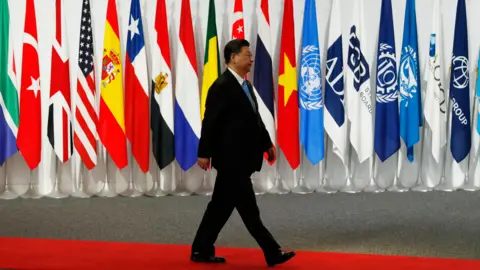In a noteworthy development in the battle against plastic pollution, Malaysia has declared a complete ban on shipments of plastic waste from the United States. As the nation that previously received more discarded plastic from wealthier countries than any other, this new policy is set to reshape global waste management practices and highlight the urgency of addressing the plastic crisis.
In 2024, Malaysia received over 35,000 tons of plastic waste from the U.S., showcasing a troubling reliance on international shipments for managing domestic plastic refuse. Notably, the Malaysian environment minister, Nik Nazmi, has made it clear that the country does not wish to be the "world's rubbish bin," following the interception of 100 shipping containers of hazardous materials labeled incorrectly as raw materials.
The backdrop to this policy change is the fallout from China’s decision in 2018 to ban the importation of plastic waste, which had previously accepted a significant portion of the world's discarded materials. The ripple effects of this ban have left many developed nations, including the U.S., struggling to find suitable waste management solutions, resulting in increased pressure on developing countries like Malaysia.
Compounding the issue, the U.S. boasts a disheartening recycling rate for plastics, with less than 10% of discarded plastics being successfully recycled. The contamination of recyclable materials, especially food and other residues, along with the complex composition of many plastic products, has made recycling efforts increasingly futile. This ban by Malaysia underscores a growing sentiment among countries grappling with the realities of waste management: prioritizing environmental protection against the influx of foreign waste.
As more nations consider adopting similar policies, it raises critical questions about the future of plastic waste disposal and the need for the United States to develop innovative recycling solutions and reduce its plastic production. The conversation surrounding plastic waste is shifting from a problem of disposal to one of responsibility and sustainability, urging international collaboration for a cleaner planet.
In 2024, Malaysia received over 35,000 tons of plastic waste from the U.S., showcasing a troubling reliance on international shipments for managing domestic plastic refuse. Notably, the Malaysian environment minister, Nik Nazmi, has made it clear that the country does not wish to be the "world's rubbish bin," following the interception of 100 shipping containers of hazardous materials labeled incorrectly as raw materials.
The backdrop to this policy change is the fallout from China’s decision in 2018 to ban the importation of plastic waste, which had previously accepted a significant portion of the world's discarded materials. The ripple effects of this ban have left many developed nations, including the U.S., struggling to find suitable waste management solutions, resulting in increased pressure on developing countries like Malaysia.
Compounding the issue, the U.S. boasts a disheartening recycling rate for plastics, with less than 10% of discarded plastics being successfully recycled. The contamination of recyclable materials, especially food and other residues, along with the complex composition of many plastic products, has made recycling efforts increasingly futile. This ban by Malaysia underscores a growing sentiment among countries grappling with the realities of waste management: prioritizing environmental protection against the influx of foreign waste.
As more nations consider adopting similar policies, it raises critical questions about the future of plastic waste disposal and the need for the United States to develop innovative recycling solutions and reduce its plastic production. The conversation surrounding plastic waste is shifting from a problem of disposal to one of responsibility and sustainability, urging international collaboration for a cleaner planet.






















